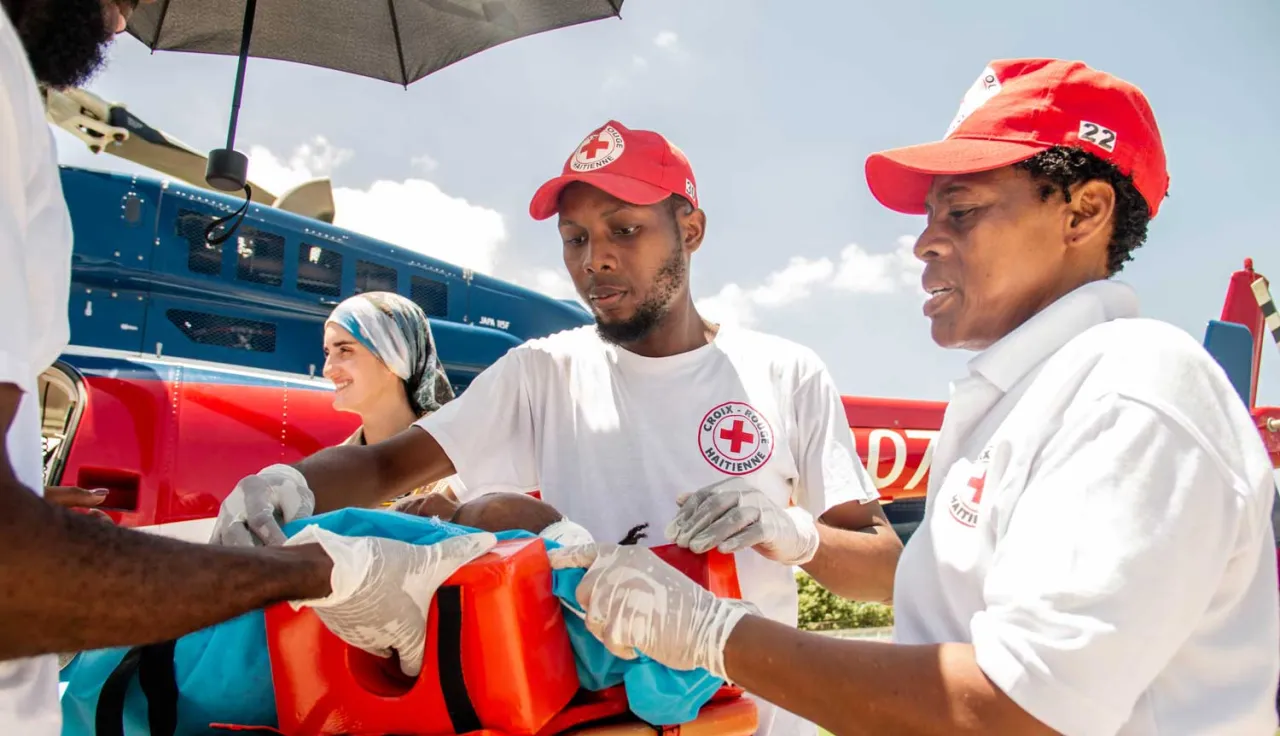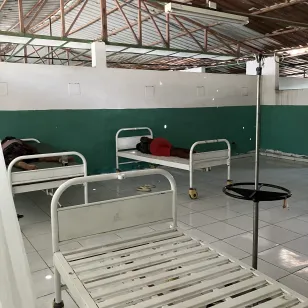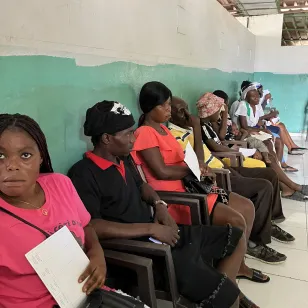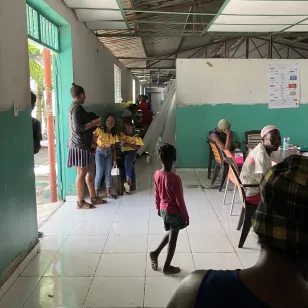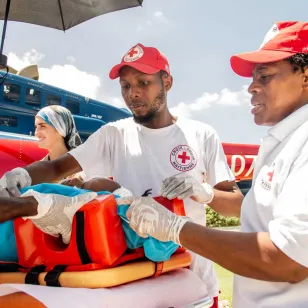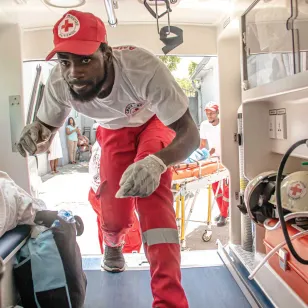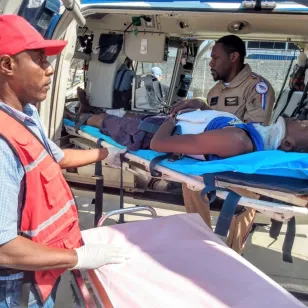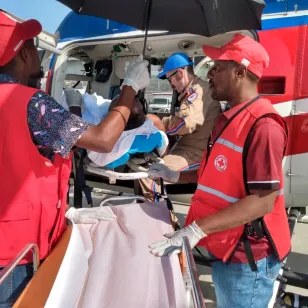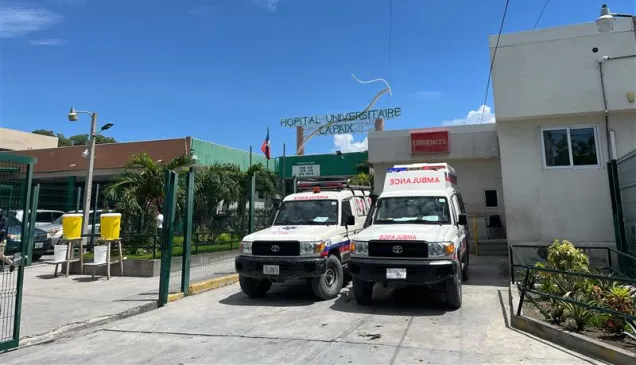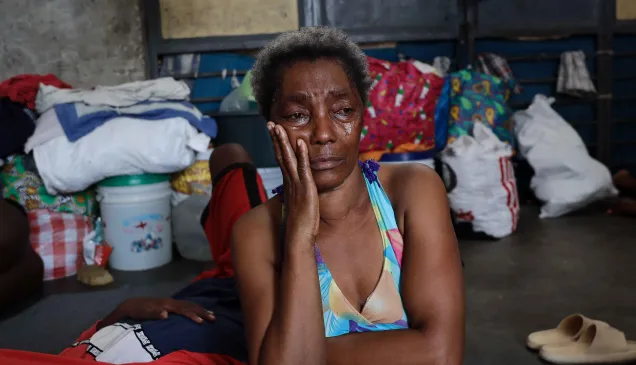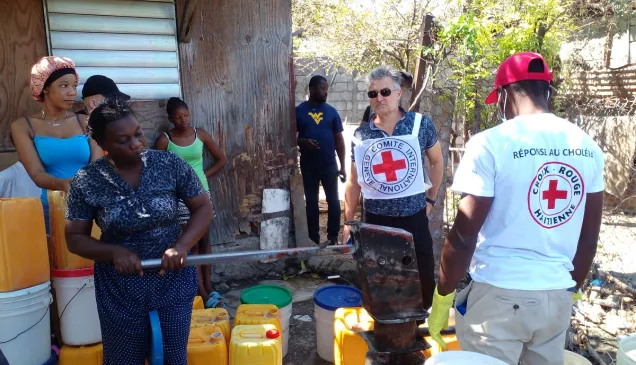Haiti: Under chronic stress and in constant fear, health workers strive to save lives
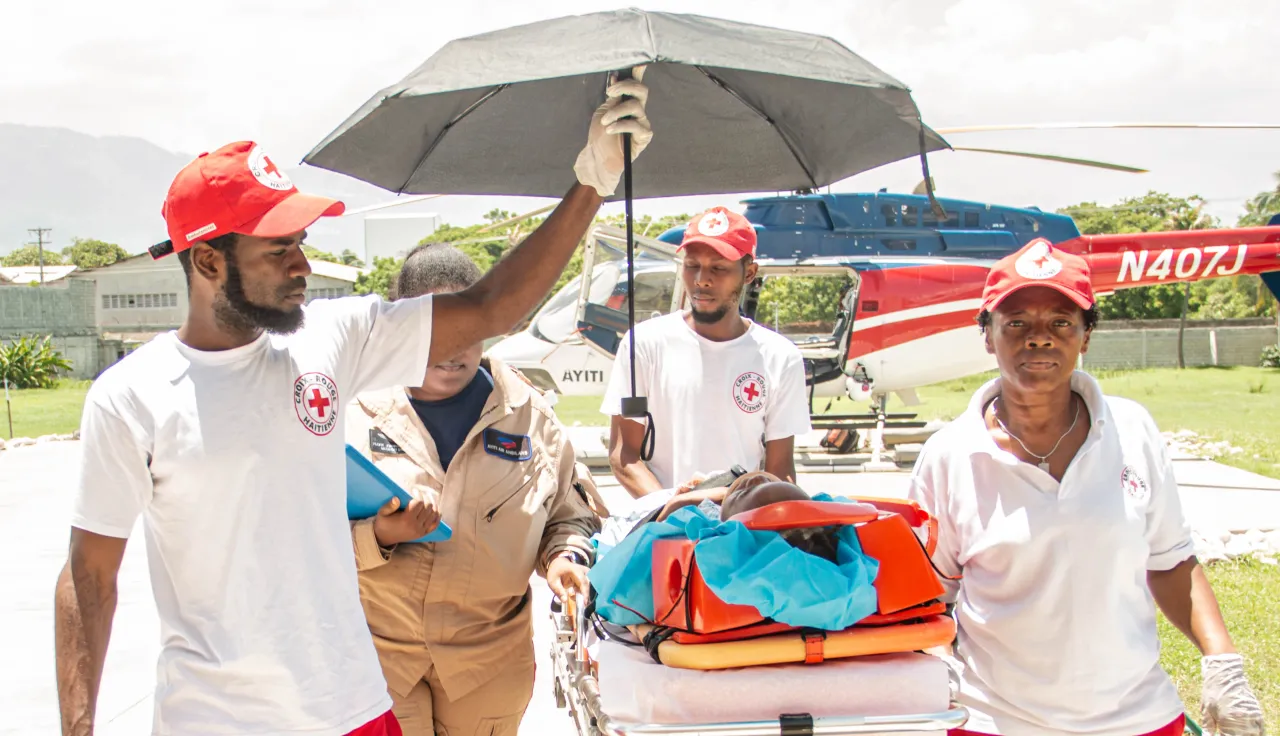
Doctor Odans describes himself as a “child of Cité Soleil”. He loves his community and is proud of its people. He wants a better future for them. He dreams of something different for his eight-month-old baby girl. But life in one of the areas worst affected by armed violence in Port-au-Prince is not easy. Being a medical worker in one of the few remaining health facilities operating there, even less so.
“Medical staff live with chronic stress, fear, depression,” he says as he shows us around the sparsely equipped rooms where patients and care givers await treatment in his hospital. “In addition to the loss of human lives every day, there´s the constant risk we face. This situation affects us deeply.”
His words speak of a reality faced by many. Six months after the escalation of the humanitarian crisis in Haiti, armed violence persists in the Port-au-Prince metropolitan region, and people in the most affected areas struggle daily with a desperate lack of access to basic services including heath care and drinkable water.
The widespread violence has pushed the health system in some areas to the brink of collapse. Armed attacks and burning and looting of health facilities, together with the lack of the most basic security conditions for staff, forced the closure of some hospitals while many others remain understaffed and damaged. Facilities face an alarming shortage of medical supplies - medicines, blood and oxygen - and many do not have a regular supply of electricity and running water. On occasion, they remain cut off for days, unable to transfer patients or receive supplies due to movement restrictions imposed by armed violence. “You feel powerless, you cannot do anything. You are a doctor, but you lack material, and the hospital is so ill-equipped… Sometimes I cannot contain my tears because it´s my community. They are my brothers, my sisters,” shares Doctor Odans.
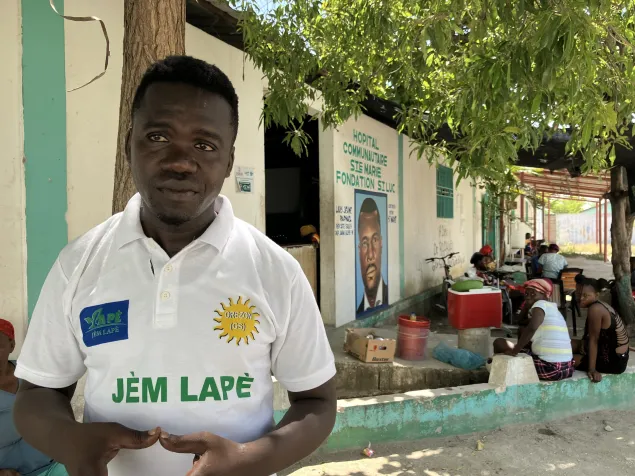
Doctor Odans works in one of the few functional hospitals still existing in Cité Soleil.
While patients in critical condition following armed confrontations continue to flood into stabilization points, many of the injured don´t even have the chance to receive the most basic treatment. Less than 20 per cent of critical health facilities that treat serious trauma in Port-au-Prince are functioning at their regular capacity, according to OCHA. Transferring patients to available health facilities is a complex task due to the precarious security conditions in which ambulances must operate. The Haitian Red Cross (HRC) ambulance service has transported more than 400 patients in 2024, but many do not manage to leave the area where they are wounded and must rely of first aid care providers, who are in most cases incapable to treat the severity of their wounds.
“Sometimes injured patients die due to lack of treatment, when we don´t get to transfer them on time because of confrontations, because the road is blocked or because the ambulances cannot enter,” said doctor Odans.
“The situation is desperate in the majority of the Port au Prince metropolitan area. Access to health care services is virtually non-existent in areas affected by armed violence, and people live in fear of being wounded if they are in the wrong place at the wrong moment,” says Marisela Silva, head of the ICRC delegation in Haiti. “The level of anxiety suffered by health care workers is difficult to describe. How can we expect quality health care to be delivered when medical personnel do not even have the most basic security guarantees to operate? Those helping the most vulnerable should never face such danger.”
In addition to the extremely challenging access to health care, the more than 600,000 displaced people in the country lack food, basic shelter and household items needed to restart their lives. They live in precarious conditions and in most cases, children do not attend school. Malnutrition is on the rise, and more than five million people - almost half of the Haitian population - needs humanitarian aid, according to the UN.
“We renew our call for the medical mission to be respected, protected, and facilitated, and for people`s access to healthcare services and supplies to be guaranteed without discrimination or limitations, at all times, and in all circumstances,” says Marisela Silva, head of the ICRC delegation in Haiti.
The ICRC also reiterates the need to protect and respect water supply systems, schools, and other essential infrastructure by all weapon bearers.
ICRC response
As attacks on critical water infrastructure increase, supporting the provision of emergency water supply to vulnerable people in the most affected areas is a priority for the ICRC. Prepositioning cholera kits and ensuring basic hygiene and access to clean water in conflict-affected areas is also critical in advance of the beginning of the cyclone season.
The ICRC continues its confidential and bilateral dialogue with concerned authorities and weapon bearers, including the Haitian National Police (HNP), members of the Multi-national Support Security Mission (MSSM) that aims to stabilize security in Haiti, and armed groups. This dialogue is focused on the importance of ensuring unhindered humanitarian access to enable access to essential services, the delivery of critical supplies and the obligation to respect and protect critical infrastructure.
The ICRC also continues to provide urgently needed weapon wounded supplies to hospitals in the affected areas and train communities in basic first aid so that they know how to stabilize the wounded before their evacuation. We support ambulance services, and ultimately contribute to the provision and continuity of emergency health care for people affected by armed violence.
